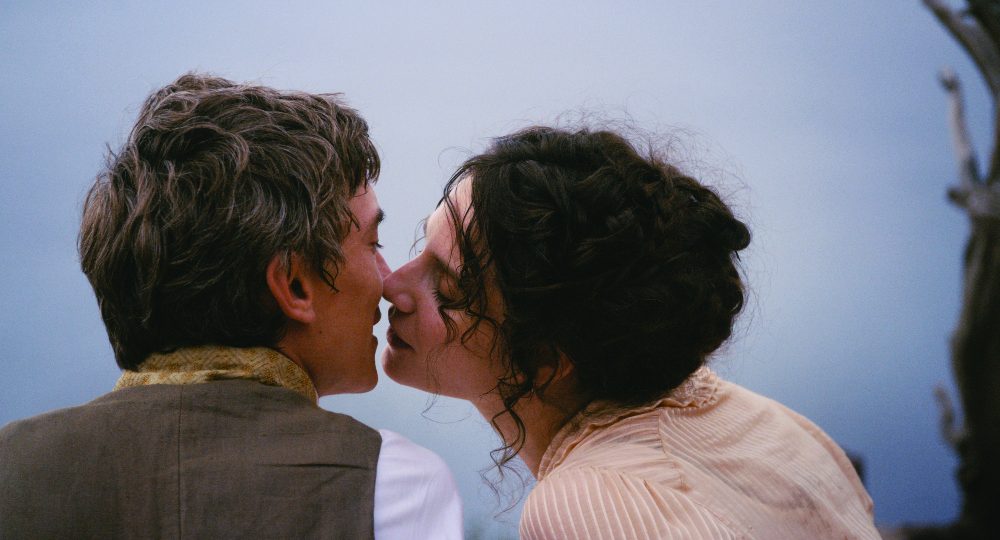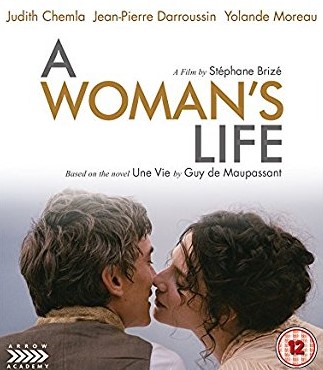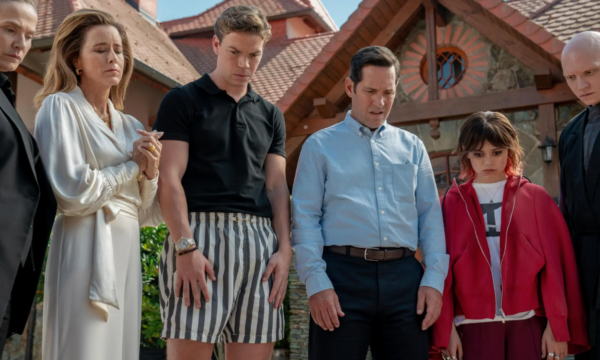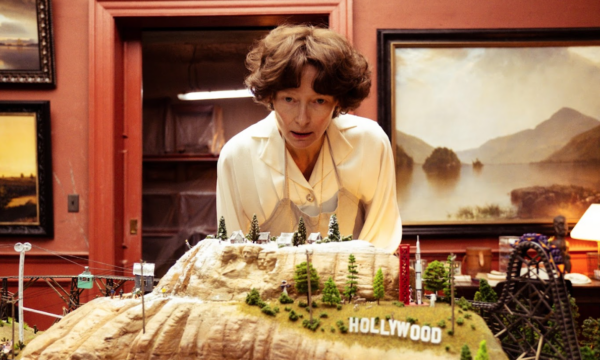Une Vie (A Woman’s Life)

A Woman’s Life (Une Vie) – a costume drama taking place in the first half of 19th-century France – feels like a documentary that was plucked from coastal Normandy. Its naturalism is oozing at its seams, and it does not feel pretentious or “acted” in the same vein as Barry London or Amadeus (both of which are amazing films in their own right).
Director/co-writer Stéphane Brizé (with co-writer Florence Vignon) shot in the 4:3 aspect ratio; this effectively confines the space around the actors, especially the lead. Although some viewers might interpret the movie as being too didactic, enough room is left to the imagination, allowing the audience to read the scenes as they like.
Judith Chemla as Jeanne Le Perthuis des Vauds is mesmerising in every frame, even though she is mostly shown in side profile. In fact, almost all the actors are only in profile, which at first is a bit disarming. Jeanne’s lack of agency is conveyed repeatedly in her interactions with male characters and also with her mother Baroness Le Perthuis des Vauds (Yolande Moreau) and her maid Rosalie (Nina Meurisse). Even the time when Jeanne refuses to disclose a secret that will ruin another marriage, a man takes the liberty to reveal her secret even though it has devastating results for her.
Perhaps the most difficult scene to watch is the one where someone is inflicting self-harm on themselves. It does not feel over-the-top, yet it gives one goosebumps. This stark realism is also reflected in the makeup and costuming, particularly when they are elbows deep in the dirt.
The six to seven instances of original score by harpsichordist Olivier Baumont exquisitely capture the emotionally charged scenes, often jumping back and forth to happier flashbacks. The chirping of birds and the sound of flowing water add new dimensions to the score. The natural usage of music is not distracting.
Although this masterwork might not be for all, especially those who prefer to be spoon-fed plotlines, its power still can’t be denied. The time covered during the ellipses will surely confuse some, more reason to give this film a second viewing. The spectacular cinematography provided by Antoine Héberlé sets the mood, the duality of Jeanne’s sunny life outside in nature as opposed to the dismal and cold confines of her marital home. The lies that Jeanne discovers, not just from her husband but from others, eat away at her naïve and optimistic self. Her crushed expectations make this quite a heavy movie. Even so, she still holds out hope that her beloved son Paul will return home.
It is refreshing that this film does not feel dumbed-down, to make sure that every viewer will reach the same conclusion. It will not be too surprising if some are turned off by the international English title, which is sad because the story is more than just a commentary on women’s role in society. Brizé’s much-lauded 2015 picture The Measure of a Man (La loi du marché) realistically depicts modern-day French social issues, yet the themes in A Woman’s Life still do not feel dated.
Lindsay Bellinger
Une Vie (A Woman’s Life) is released in selected cinemas on 12th January 2018.
Watch the trailer for Une Vie (A Woman’s Life) here:



















Facebook
Twitter
Instagram
YouTube
RSS